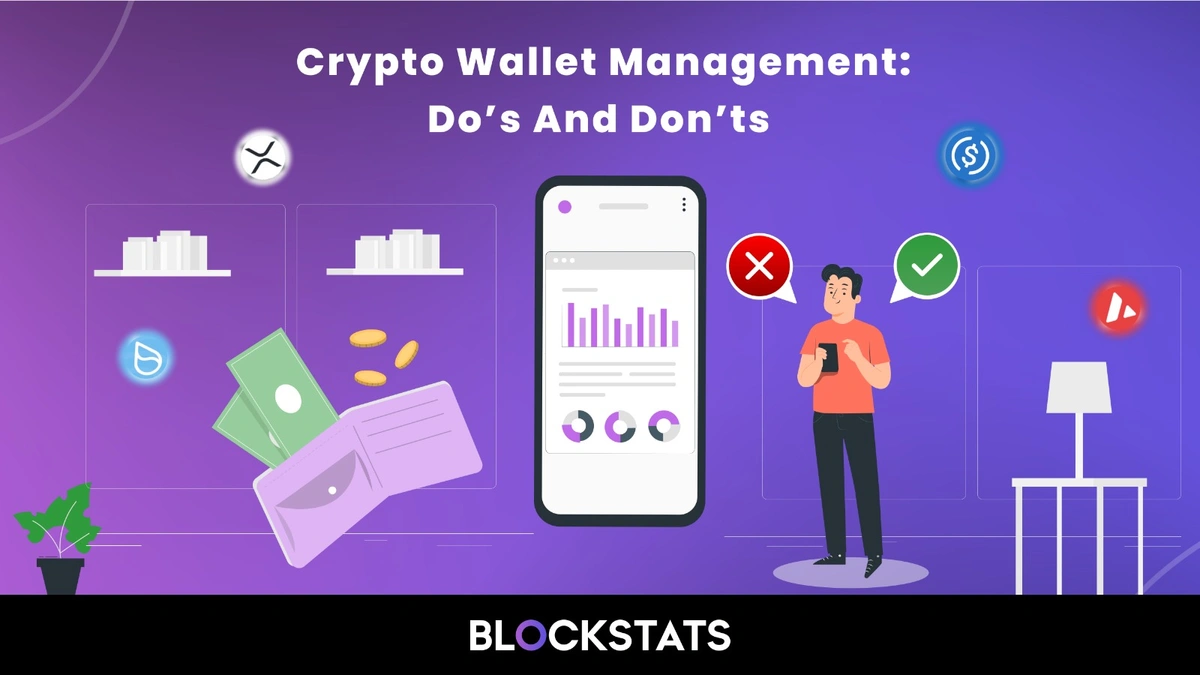Crypto Wallet Management: Do’s and Don’ts
Managing a crypto wallet is more than just storing your digital coins — it is about securing your assets, protecting your privacy, and ensuring you are always in control. With hacks, phishing attacks, and accidental losses still common in the crypto space, understanding the do’s and don’ts of crypto wallet management is crucial for every investor.
Whether you're using a hot wallet, cold wallet, or both, these practical guidelines will help you manage your wallet safely and effectively.
Crypto Wallet Do’s
1. Do Use a Hardware (Cold) Wallet for Long-Term Storage
Hardware wallets like Ledger, Trezor, or GridPlus store your private keys offline, making them highly secure against hacks.
Use cold wallets for storing large amounts of crypto or coins you don’t plan to trade often.
2. Do Keep Your Private Keys and Recovery Phrases Offline
Your private keys are the master keys to your wallet. Always write them down and store them in a secure, offline location — not on your phone or cloud storage.
Bonus Tip: Use a fireproof safe or metal recovery plate for storing seed phrases.
3. Do Enable Two-Factor Authentication (2FA)
Always enable 2FA on wallets, exchanges, and portfolio trackers to prevent unauthorized access.
Use apps like Google Authenticator or Authy — not SMS — for better protection.
4. Do Double-Check Wallet Addresses Before Sending
Crypto transactions are irreversible. Always copy and paste wallet addresses carefully, and consider using address whitelisting where supported.
5. Do Use Different Wallets for Different Purposes
Separate wallets for:
-
Long-term holding
-
Daily trading
-
DeFi and NFTs
This helps reduce risk and improves organization.
6. Do Regular Backups
Back up your wallets regularly, especially if you are using software or desktop wallets like Exodus or Electrum.
Keep backups updated with any major changes to your wallet.
Crypto Wallet Don’ts
1. Don’t Store Large Amounts in Hot Wallets
Hot wallets (connected to the internet) are convenient but unprotected. Avoid keeping large holdings in MetaMask, Trust Wallet, or browser-based wallets.
2. Don’t Share Your Seed Phrase or Private Key
No legitimate platform will ever ask for your seed phrase. Sharing it means giving away full control of your wallet.
Common scam: “Customer support” asking for your recovery phrase — don’t fall for it.
3. Don’t Reuse Wallet Addresses Unnecessarily
While technically allowed, reusing addresses can compromise privacy and make you a target for doxxing or phishing.
Use new addresses for each transaction if your wallet supports it.
4. Don’t Ignore Wallet Updates
Developers regularly release security patches. Delaying updates could expose your wallet to known vulnerabilities.
5. Don’t Trust Random Airdrops or Token Approvals
Connecting your wallet to sketchy dApps or signing random transactions can drain your funds.
Always review permissions and revoke token access using tools like Revoke.cash.
6. Don’t Rely on One Backup Only
Backups can get lost, stolen, or damaged. Maintain multiple copies stored securely in different locations.
Conclusion
Proper crypto wallet management is a must for protecting your assets in today’s digital world. By following these simple do’s and don’ts, you will reduce your risk of hacks, accidental losses, and costly mistakes. The key is to stay informed, stay cautious, and stay in control of your keys and devices.
Use reputable wallet tools, practice good security hygiene, and treat your crypto like you would any high-value asset.
